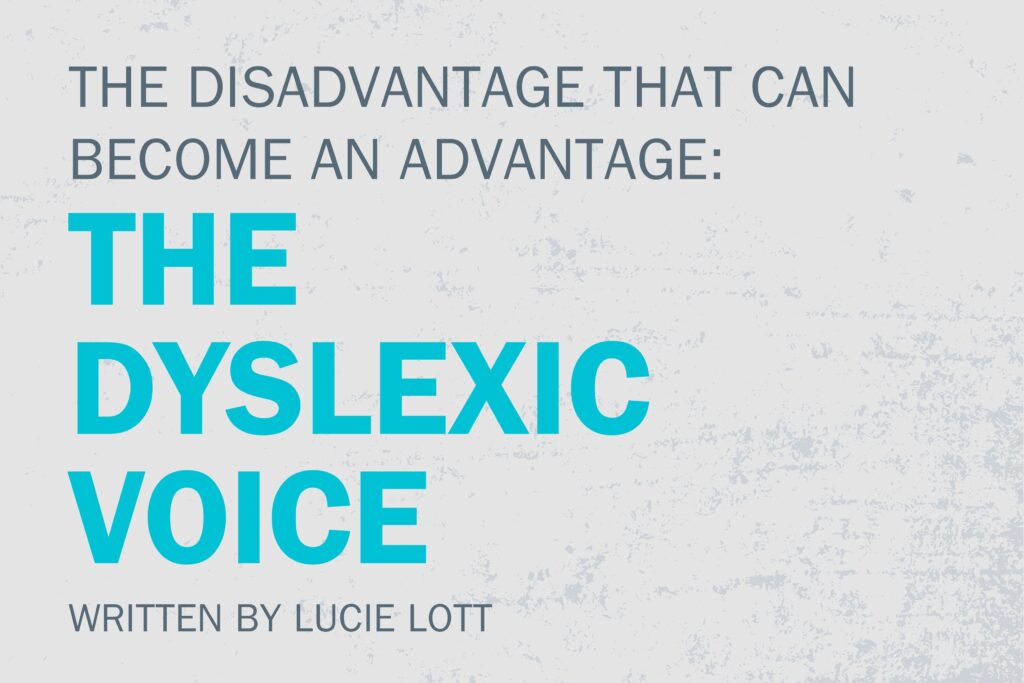The Disadvantage that can become an Advantage: The Dyslexic Voice

Going back to the third grade, the teacher passes out a piece of paper and tells the class that we will have a timed writing assignment on the chapter we just read. For the average student, this might be scary, but doable. For a student who has dyslexia, however, this task seems impossible.
Timed writing is difficult for students with dyslexia because memory retrieval usually requires more time for a dyslexic learner to complete while timed writing and memory retrieval come naturally to the average learner. Most students proceed to check all the boxes of the typical knowledge development stages while dyslexic learners like myself sit in the back, slowly slipping away into the cracks of the broken education system.
Reading, writing, and memorization are vital to growth; however, creativity, musicality, and artistic capabilities are just as important. When connecting with a public — either in a professional setting or a personal one — to convey a message, you may need to shift your focus and approach to more effectively get your message across.
A single story can be told in a multitude of ways. As a PR writer, it’s easy to find yourself in a repetitive writing pattern, but this may result in only reaching one type of audience.
So, now we ask the question: why would the person who fell through the cracks of the primary school system make an outstanding public relations professional?
Public relations professionals with dyslexia have the advantage of approaching a situation from a different angle. I even argue that professionals with dyslexia should still write because there are many ways to tell a story, and the dyslexic author may be able to reach a different group of people through their writing.
There is a gap in understanding the gifts a learner with dyslexia has. In PR, it is often essential to take a step back, view a story from a different angle, and think creatively; which is an approach that is likely second-nature to a professional with dyslexia.
Dyslexia affects skills such as phonological awareness, verbal memory, and verbal processing speed, which may make many seemingly basic skills become more challenging. Still, while many dyslexic professionals may need to work harder at some tasks than a neurotypical person, there are many skills that a dyslexic person will naturally possess.
For instance, those with dyslexia tend to excel at thinking creatively and coming up with solutions to problems, which are critical for a profession such as PR where professionals constantly need to adapt to different situations and think outside the box. Research has also shown that those with dyslexia tend to be very adept at visual observation and processing – another skill that may come in handy for PR professionals.
The world of public relations would be enhanced by the unique qualities this margin of individuals could bring to the table. I encourage public relations professionals with dyslexia to use their “disability” as a strength to direct a different, perhaps more creative approach to the public relations world.

Lucie Lott is a junior journalism and mass communications major with a concentration in public relations at Samford University. After realizing at a young age that she learned differently than others, Lucie was diagnosed with dyslexia. Lucie is passionate about being a strong advocate for her peers and herself; she even served on an advocacy board to educate student teachers at nearby universities — including Boston College and Harvard — about the topic of dyslexia and its pressing accommodations.

Thanks for sharing your story Lucie!
This is an amazing story! You are an inspiration to many! 😊
As a communications professional and the parent of a child who has learning difficulties, I genuinely appreciate you sharing your story.
Beautifully written. I love that you share your journey to help empower others! Thank you for providing a voice and perspective for these learners.
I am so proud of you! Beautifully written. 💙
Great article on some of the benefits of being unique. Thank you for sharing .
Great job Lucie! Amazing to have someone like you share your story and educate those around you as well as those in the field of education. So proud of the way you took on this challenge and your success is a positive for all!